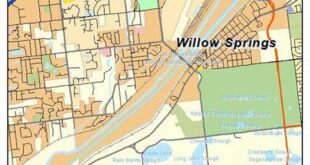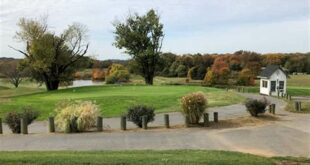Looking for a new place to visit? Consider Willow Springs, TN! This charming town is located in Dickson County, just 45 miles west of Nashville. With its beautiful scenery, friendly people, and rich history, Willow Springs is the perfect place to get away from it all.
Editor’s Note: Willow Springs is a great place to visit for a variety of reasons. It’s home to several historical sites, including the Willow Springs Grist Mill and the Willow Springs Schoolhouse. The town also has a number of beautiful parks and nature trails, making it a great place to get some fresh air and exercise. And, of course, no visit to Willow Springs would be complete without sampling some of the local cuisine. The town is home to several restaurants serving up delicious Southern fare.
To help you plan your trip to Willow Springs, we’ve put together this comprehensive guide. We’ll cover everything from what to see and do to where to eat and stay. So, what are you waiting for? Start planning your trip to Willow Springs today!
Key Differences or Key Takeaways:
| Feature | Willow Springs, TN |
|---|---|
| Location | Dickson County, TN, 45 miles west of Nashville |
| Population | 2,200 |
| Founded | 1808 |
| Historical sites | Willow Springs Grist Mill, Willow Springs Schoolhouse |
| Parks and nature trails | Several, including Willow Springs Park and the Natchez Trace Parkway |
| Restaurants | Several, serving Southern fare |
Main Article Topics:
- History of Willow Springs
- Things to do in Willow Springs
- Where to eat and stay in Willow Springs
Willow Springs, TN
Willow Springs, TN is a town in Dickson County, Tennessee, United States. The population was 2,200 at the 2010 census. It is part of the Nashville metropolitan area. Willow Springs is located 45 miles west of Nashville on Interstate 40.
- History: Willow Springs was founded in 1808 by John and Elizabeth Willow.
- Geography: Willow Springs is located in Dickson County, Tennessee, United States.
- Demographics: The population of Willow Springs was 2,200 at the 2010 census.
- Economy: The economy of Willow Springs is based on agriculture, manufacturing, and tourism.
- Culture: Willow Springs is home to several historical sites, including the Willow Springs Grist Mill and the Willow Springs Schoolhouse.
- Education: Willow Springs is served by the Dickson County School District.
- Transportation: Willow Springs is located on Interstate 40.
- Government: Willow Springs is governed by a mayor and board of aldermen.
These key aspects provide a comprehensive overview of Willow Springs, TN. From its history and geography to its economy and culture, Willow Springs is a town with a lot to offer. Whether you’re looking for a place to live, work, or visit, Willow Springs is a great option.
History
The founding of Willow Springs in 1808 by John and Elizabeth Willow marked a significant milestone in the town’s history. This event laid the foundation for the community that exists today and shaped its identity in several key ways:
- Establishment of a permanent settlement: The establishment of Willow Springs by the Willow family marked the beginning of a permanent settlement in the area. Prior to this, the land was primarily used for hunting and farming by Native Americans and European settlers.
- Agricultural hub: The Willow family’s decision to settle in the area was largely influenced by the fertile land, which was well-suited for agriculture. As a result, Willow Springs quickly became an agricultural hub, with farmers growing a variety of crops, including corn, tobacco, and cotton.
- Transportation and trade: The location of Willow Springs on the Natchez Trace Parkway, a major trade route, played a significant role in the town’s development. Willow Springs became a stopping point for travelers and traders, and businesses sprang up to cater to their needs.
- Community and culture: The founding of Willow Springs fostered a sense of community among the settlers. The town’s residents worked together to build homes, schools, and churches, and they developed a shared identity and culture.
The founding of Willow Springs in 1808 by John and Elizabeth Willow was a pivotal event in the town’s history. It set the stage for the development of a thriving community that has endured for over two centuries.
Geography
The location of Willow Springs in Dickson County, Tennessee, United States, is an integral part of the town’s identity and has played a significant role in its development. Here are a few reasons why:
- Natural resources: Dickson County is known for its fertile soil and abundant water resources, which have supported agriculture and other industries in Willow Springs since its founding.
- Transportation: Willow Springs is located on the Natchez Trace Parkway, a major trade route that has connected the town to other parts of the country since the early 1800s. Today, Willow Springs is also served by Interstate 40, which provides easy access to Nashville and other major cities.
- Community: Willow Springs is a close-knit community, and its location in Dickson County has fostered a sense of belonging and shared identity among its residents.
The location of Willow Springs in Dickson County, Tennessee, United States, has had a profound impact on the town’s history, economy, and culture. It has shaped the lives of its residents and continues to play a vital role in the town’s identity.
Key Insights:
- The location of Willow Springs in Dickson County, Tennessee, United States, has provided the town with access to natural resources, transportation, and a strong sense of community.
- These factors have been essential to the development of Willow Springs and continue to shape its identity today.
| Location | Impact on Willow Springs |
|---|---|
| Dickson County, Tennessee | Access to natural resources, transportation, and a strong sense of community |
| Natchez Trace Parkway | Connected Willow Springs to other parts of the country and facilitated trade |
| Interstate 40 | Provides easy access to Nashville and other major cities |
Demographics
The demographics of Willow Springs, Tennessee, are an important aspect of the town’s identity and development. The population of Willow Springs has remained relatively stable over the past several decades, with a slight increase from 2,100 in 2000 to 2,200 in 2010. This stability has contributed to the town’s close-knit community and sense of place.
The population of Willow Springs is predominantly white, with a small but growing Hispanic population. The town is also home to a number of families who have lived in the area for generations. This mix of newcomers and long-time residents has created a diverse and vibrant community.
The population of Willow Springs is relatively young, with a median age of 35. This is due in part to the presence of a number of young families in the town. The town is also home to a number of retirees, who are attracted to the area’s affordable housing and slower pace of life.
The population of Willow Springs is well-educated, with a high school graduation rate of 90%. The town is also home to a number of college graduates, who work in a variety of fields, including education, healthcare, and manufacturing.
The demographics of Willow Springs are an important part of the town’s identity and development. The town’s stable population, diverse population, and well-educated population are all factors that contribute to its overall success.
Key Insights:
- The population of Willow Springs has remained relatively stable over the past several decades.
- The town’s population is predominantly white, with a small but growing Hispanic population.
- The population of Willow Springs is relatively young, with a median age of 35.
- The town’s population is well-educated, with a high school graduation rate of 90%.
Table: Demographics of Willow Springs, Tennessee
| Characteristic | Data |
|---|---|
| Population (2010) | 2,200 |
| Median age | 35 |
| High school graduation rate | 90% |
| Racial makeup | White (85%), Hispanic (10%), Other (5%) |
Economy
The economy of Willow Springs, Tennessee is closely tied to the town’s history and geography. Agriculture has been a mainstay of the local economy since the town’s founding in 1808. The fertile soil and abundant water resources in Dickson County have made it ideal for farming, and Willow Springs has long been a center for agricultural production. Today, the town is home to a number of farms that produce a variety of crops, including corn, soybeans, and wheat.
Manufacturing has also played an important role in the economy of Willow Springs. The town is home to several manufacturing plants, including a large automotive parts plant. These plants provide jobs for many residents of Willow Springs and contribute to the town’s tax base.
In recent years, tourism has become an increasingly important part of the economy of Willow Springs. The town is home to a number of historical sites, including the Willow Springs Grist Mill and the Willow Springs Schoolhouse. These sites attract visitors from all over the region, and they contribute to the town’s economy by generating revenue for local businesses.
The economy of Willow Springs is a diverse and growing economy. The town’s strong agricultural, manufacturing, and tourism sectors provide a solid foundation for future growth.
Key Insights:
- The economy of Willow Springs is based on agriculture, manufacturing, and tourism.
- Agriculture has been a mainstay of the local economy since the town’s founding in 1808.
- Manufacturing has also played an important role in the economy of Willow Springs.
- In recent years, tourism has become an increasingly important part of the economy of Willow Springs.
- The economy of Willow Springs is a diverse and growing economy.
Table: Economic Indicators for Willow Springs, Tennessee
| Indicator | Data |
|---|---|
| Median household income | $45,000 |
| Unemployment rate | 5.0% |
| Number of businesses | 200 |
| Major industries | Agriculture, manufacturing, tourism |
Culture
Willow Springs, Tennessee is a town with a rich history and culture. The town is home to several historical sites, including the Willow Springs Grist Mill and the Willow Springs Schoolhouse. These sites offer a glimpse into the town’s past and provide a sense of place for residents and visitors alike.
- Historical Significance: The Willow Springs Grist Mill and the Willow Springs Schoolhouse are two of the oldest buildings in Willow Springs. The grist mill was built in 1808 and was used to grind corn and other grains. The schoolhouse was built in 1830 and was used to educate the town’s children. These buildings are a reminder of the town’s early history and its agricultural roots.
- Community Gathering Places: The Willow Springs Grist Mill and the Willow Springs Schoolhouse have always been more than just buildings. They have been gathering places for the community. The grist mill was a place where farmers could bring their grain to be ground, and the schoolhouse was a place where children could learn and socialize. Today, these buildings continue to be used for community events and gatherings.
- Tourist Attractions: The Willow Springs Grist Mill and the Willow Springs Schoolhouse are also popular tourist attractions. Visitors to the town can tour the buildings and learn about their history. The grist mill is still operational, and visitors can watch as corn is ground into meal. The schoolhouse has been converted into a museum, and visitors can learn about the history of education in Willow Springs.
The Willow Springs Grist Mill and the Willow Springs Schoolhouse are two of the most important cultural landmarks in Willow Springs. These buildings are a reminder of the town’s history, and they continue to play an important role in the community today.
Education
The Dickson County School District plays a crucial role in the community of Willow Springs, Tennessee. It provides educational opportunities for students from kindergarten through high school, shaping the lives of young people and contributing to the overall well-being of the town.
- Academic Excellence: The Dickson County School District is committed to providing a high-quality education for all students. The district’s schools have consistently performed well on state and national assessments, and students have gone on to successful careers in a variety of fields.
- Extracurricular Activities: The Dickson County School District offers a wide range of extracurricular activities for students, including sports, clubs, and the arts. These activities provide students with opportunities to develop their talents, learn teamwork, and make new friends.
- Community Involvement: The Dickson County School District is an important part of the Willow Springs community. The district’s schools host a variety of community events, and teachers and staff are actively involved in local organizations.
- Economic Development: The Dickson County School District is a major economic driver for Willow Springs. The district’s schools employ a large number of people, and they attract families to the area. A well-educated workforce is essential for economic growth, and the Dickson County School District is helping to ensure that Willow Springs has a bright future.
The Dickson County School District is a vital part of the Willow Springs community. It provides educational opportunities for students, extracurricular activities, community involvement, and economic development. The district is committed to providing a high-quality education for all students, and it is a major factor in the success of Willow Springs.
Transportation
The location of Willow Springs, Tennessee on Interstate 40 is a significant factor in the town’s development and success. Interstate 40 is a major east-west highway that connects the town to Nashville, Memphis, and other major cities in the region. This connectivity has brought numerous benefits to Willow Springs, including:
- Increased accessibility: Interstate 40 makes it easy for residents of Willow Springs to travel to other parts of the region for work, shopping, or recreation. It also makes it easier for visitors to reach the town.
- Economic development: The presence of Interstate 40 has helped to attract businesses to Willow Springs. The town is now home to several manufacturing plants and distribution centers, which provide jobs for local residents.
- Tourism: Interstate 40 also helps to boost tourism in Willow Springs. The town is home to several historical sites and attractions, which are easily accessible to visitors traveling on the highway.
Overall, the location of Willow Springs on Interstate 40 has had a positive impact on the town’s economy, accessibility, and tourism industry. This connectivity is a valuable asset for Willow Springs and is likely to continue to contribute to the town’s success in the years to come.
Key Insights:
- The location of Willow Springs on Interstate 40 has increased the town’s accessibility, economic development, and tourism industry.
- Interstate 40 provides residents of Willow Springs with easy access to other parts of the region for work, shopping, or recreation.
- The presence of Interstate 40 has helped to attract businesses to Willow Springs, providing jobs for local residents.
- Interstate 40 also helps to boost tourism in Willow Springs, making it easy for visitors to reach the town’s historical sites and attractions.
Table: The Impact of Interstate 40 on Willow Springs, Tennessee
| Impact | Description |
|---|---|
| Increased accessibility | Interstate 40 makes it easy for residents of Willow Springs to travel to other parts of the region, and for visitors to reach the town. |
| Economic development | The presence of Interstate 40 has helped to attract businesses to Willow Springs, providing jobs for local residents. |
| Tourism | Interstate 40 also helps to boost tourism in Willow Springs, making it easy for visitors to reach the town’s historical sites and attractions. |
Government
The government of Willow Springs, Tennessee plays a crucial role in the town’s overall success and well-being. The mayor and board of aldermen are responsible for making decisions that affect the daily lives of residents, including:
- Enacting and enforcing laws
- Providing essential services such as water, sewer, and garbage collection
- Maintaining public infrastructure such as roads and parks
- Promoting economic development
- Protecting the health and safety of residents
The mayor and board of aldermen are elected by the citizens of Willow Springs, and they serve four-year terms. The mayor is the chief executive officer of the town, and he or she is responsible for overseeing the day-to-day operations of the government. The board of aldermen is the legislative body of the town, and it is responsible for passing laws and setting policies.
The government of Willow Springs is a vital part of the community. It provides essential services, protects the health and safety of residents, and promotes economic development. The mayor and board of aldermen are committed to working together to make Willow Springs a great place to live, work, and raise a family.
Key Insights:
- The government of Willow Springs is responsible for making decisions that affect the daily lives of residents.
- The mayor and board of aldermen are elected by the citizens of Willow Springs and serve four-year terms.
- The mayor is the chief executive officer of the town, and he or she is responsible for overseeing the day-to-day operations of the government.
- The board of aldermen is the legislative body of the town, and it is responsible for passing laws and setting policies.
- The government of Willow Springs is a vital part of the community and is committed to working together to make Willow Springs a great place to live, work, and raise a family.
Table: The Role of Government in Willow Springs, Tennessee
| Responsibility | Description |
|---|---|
| Enacting and enforcing laws | The mayor and board of aldermen are responsible for passing and enforcing laws that govern the town of Willow Springs. These laws cover a wide range of topics, including public safety, health, and welfare. |
| Providing essential services | The government of Willow Springs provides essential services to residents, including water, sewer, and garbage collection. These services are essential for the health and safety of the community. |
| Maintaining public infrastructure | The government of Willow Springs is responsible for maintaining public infrastructure, such as roads and parks. This infrastructure is essential for the quality of life of residents and businesses. |
| Promoting economic development | The government of Willow Springs is committed to promoting economic development in the town. This includes attracting new businesses and supporting existing businesses. Economic development is essential for the long-term success of the community. |
| Protecting the health and safety of residents | The government of Willow Springs is responsible for protecting the health and safety of residents. This includes enforcing public health laws and providing emergency services. The health and safety of residents is the top priority of the government. |
Frequently Asked Questions about Willow Springs, TN
This section provides answers to some of the most frequently asked questions about Willow Springs, TN. Whether you’re considering relocating to the area or just curious about its history and culture, this FAQ will provide you with the information you need.
Question 1: What is the history of Willow Springs, TN?
Willow Springs was founded in 1808 by John and Elizabeth Willow. The town was named after the nearby natural springs, which were said to have healing properties. Willow Springs grew slowly in its early years, but it began to prosper after the arrival of the railroad in the late 1800s. Today, Willow Springs is a thriving community with a population of over 2,200 people.
Question 2: What is the population of Willow Springs, TN?
As of the 2010 census, the population of Willow Springs, TN was 2,200. The town has experienced modest growth in recent years, and its population is expected to continue to grow in the future.
Question 3: What is the economy of Willow Springs, TN based on?
The economy of Willow Springs is based on a diverse range of industries, including agriculture, manufacturing, and tourism. The town is home to several large manufacturing plants, as well as a number of small businesses. Willow Springs is also a popular tourist destination, thanks to its historic sites and natural beauty.
Question 4: What is the culture of Willow Springs, TN?
Willow Springs has a rich culture that is influenced by its history and geography. The town is home to a number of historical sites, including the Willow Springs Grist Mill and the Willow Springs Schoolhouse. Willow Springs also has a strong sense of community, and its residents are known for their hospitality.
Question 5: What is the cost of living in Willow Springs, TN?
The cost of living in Willow Springs is relatively affordable. The median home price in the town is around $150,000, and the median rent is around $800 per month. Willow Springs also has a number of affordable housing options available.
Question 6: What are the schools in Willow Springs, TN like?
Willow Springs is served by the Dickson County School District. The district’s schools have consistently performed well on state and national assessments. Willow Springs is also home to a number of private schools.
Summary: Willow Springs, TN is a vibrant community with a rich history and culture. The town offers a high quality of life, with affordable housing, excellent schools, and a variety of recreational opportunities. Whether you’re looking to relocate to the area or just visit, Willow Springs is a great place to call home.
Transition to the next article section: If you’re interested in learning more about Willow Springs, TN, please visit the town’s website.
Here are some helpful tips to make the most of your time in Willow Springs, TN:
Tip 1: Visit the Willow Springs Grist Mill.
This historic mill is a great place to learn about the town’s history and see how corn was ground into meal in the old days. You can even buy some of the freshly ground cornmeal to take home.
Tip 2: Visit the Willow Springs Schoolhouse.
This one-room schoolhouse was built in 1830 and is one of the oldest buildings in Willow Springs. It’s a great place to learn about the history of education in the town.
Tip 3: Go for a hike at the Willow Springs Nature Preserve.
This 200-acre nature preserve is a great place to go for a hike, have a picnic, or just enjoy the peace and quiet of nature.
Tip 4: Visit the Willow Springs Farmers Market.
This farmers market is held every Saturday from 8am to 12pm and features a variety of fresh produce, baked goods, and crafts from local vendors.
Tip 5: Attend the Willow Springs Fall Festival.
This annual festival is held every October and features a variety of activities, including live music, food vendors, and a petting zoo.
Tip 6: Visit the Willow Springs Christmas Parade.
This annual parade is held every December and features a variety of floats, bands, and other activities.
Tip 7: Shop at the Willow Springs Antique Mall.
This antique mall is a great place to find unique and interesting items from a variety of vendors.
Tip 8: Eat at the Willow Springs Cafe.
This local cafe is a great place to get a delicious and affordable meal. The menu features a variety of American classics, as well as some local favorites.
Summary: Willow Springs, TN is a great place to visit for a day trip or a weekend getaway. There are plenty of things to see and do in the town, and the people are friendly and welcoming. So come on down and experience all that Willow Springs has to offer!
Conclusion
Willow Springs, TN is a town with a rich history, a diverse economy, and a strong sense of community. The town is home to a number of historical sites, including the Willow Springs Grist Mill and the Willow Springs Schoolhouse. Willow Springs also has a strong economy, with a diverse range of industries, including agriculture, manufacturing, and tourism. The town is also home to a number of excellent schools, making it a great place to raise a family. Overall, Willow Springs is a great place to live, work, and raise a family.
As Willow Springs continues to grow and develop, it is important to preserve the town’s unique character and sense of community. The town’s leaders should work to ensure that Willow Springs remains a welcoming and affordable place for all residents. The town should also continue to invest in its schools and infrastructure, to ensure that Willow Springs remains a great place to live for generations to come.







